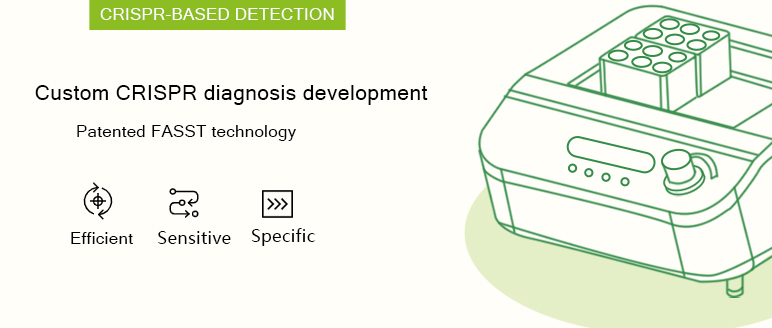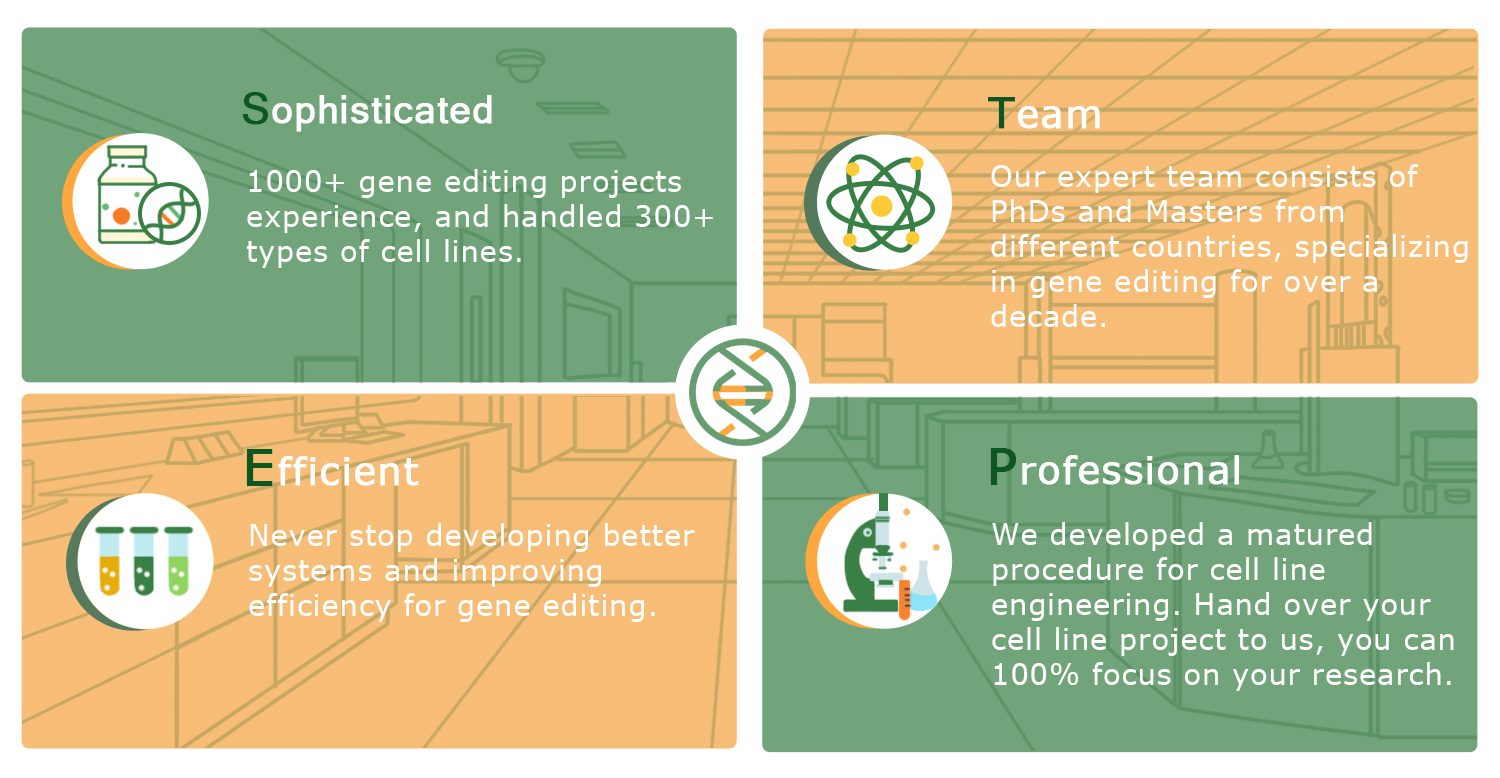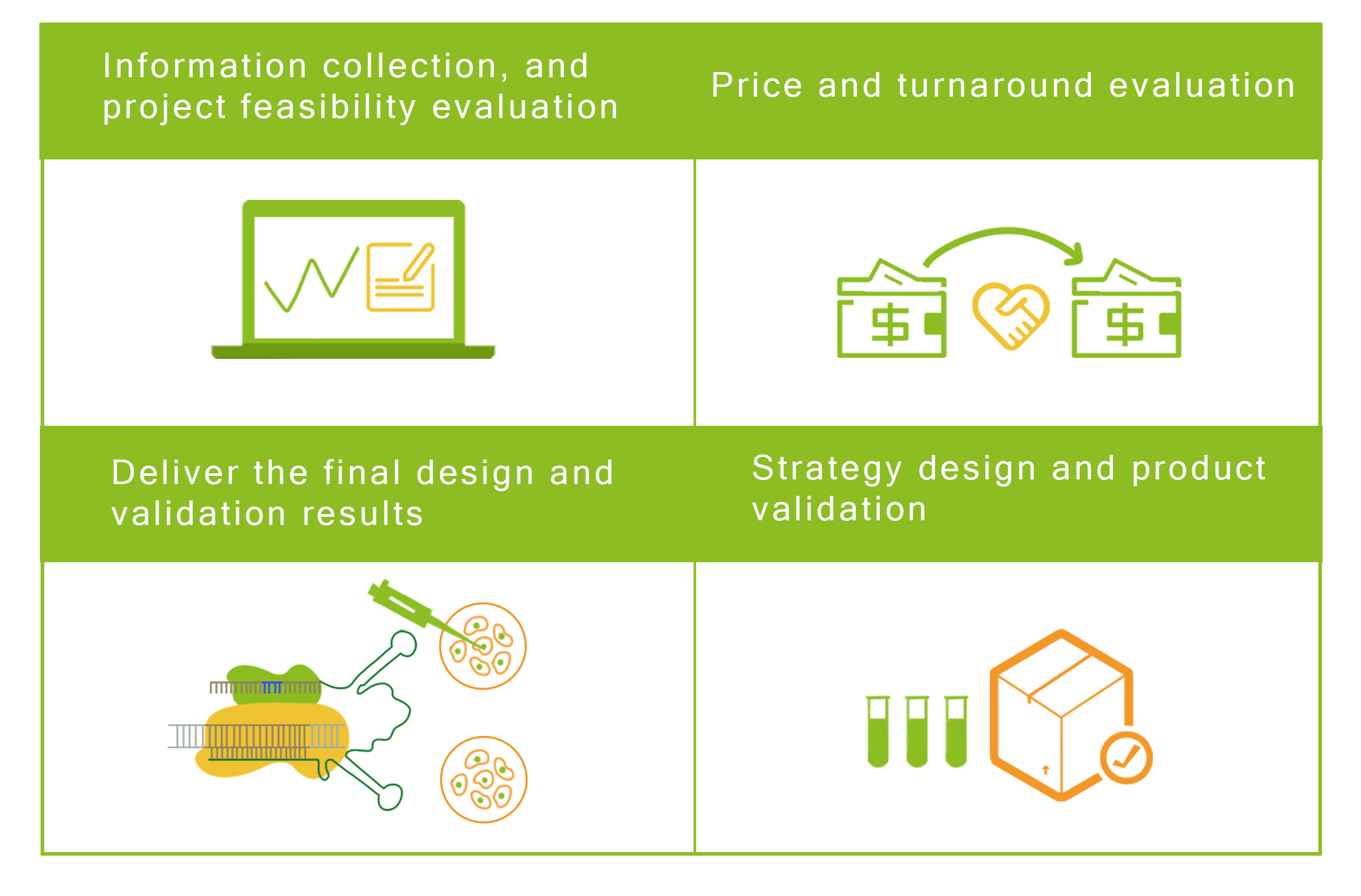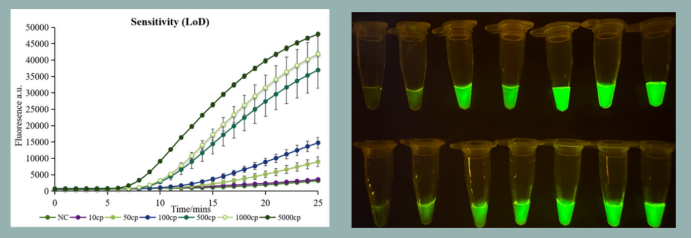
Custom Detection Service
Get a quoteEDITGENE has an experienced technical team with CRISPR detection. Our patented technology, FASST, overcomes most of the shortcomings of the traditional diagnosis methods. No heavy instruments, only 10 minutes! This is an important technology for POCT.
In addition, EDITGENE also provide RPA primer design and crRNA design services. We have summarized the most sensitive crRNA design principle, to speed up your CRISPR diagnosis R&D!

Features
The FASST technology is a high-sensitivity, high-specificity, rapid thermostatic nucleic acid detection technology. FASST is one of the CRISPR-based detection methods, and it relies on multiple enzymes to work synergistically at room temperature to achieve rapid amplification of nucleic acids, which has dual specificity and dual signal amplification.
Traditional CRISPR detection uses a two-reaction system in two different tubes. This system has a high chance of contamination. The common single-tube system has low sensitivity and takes longer for a test. Thus, EDITGENE developed FASST technology, which combines the high-activity Cas enzyme and the unique crRNA and reporter design principles to achieve high-sensitivity detection. It is a single-tube system, yet maintains high sensitivity and short reaction time. FASST solves most weaknesses of the traditional CRISPR detection system.
● Cas enzymes: LbCas12a, AapCas12b, LwaCas13a, LbuCas13a
● Price and turnaround: Please contact our expert team for a project evaluation
Services :
1. Complete service for CRISPR-based diagnosis project
2. CRISPR detection kit development
3. Reporter design and synthesis
4. RPA primer design and synthesis
5. crRNA design and synthesis
Why EDITGENE?

Workflow

Case study

ASFV 1070 was used to detect African swine fever virus, and FASST CRISPR detection technology could detect 1000 copies within 10 minutes, and 50-100 copies within 20 minutes.

